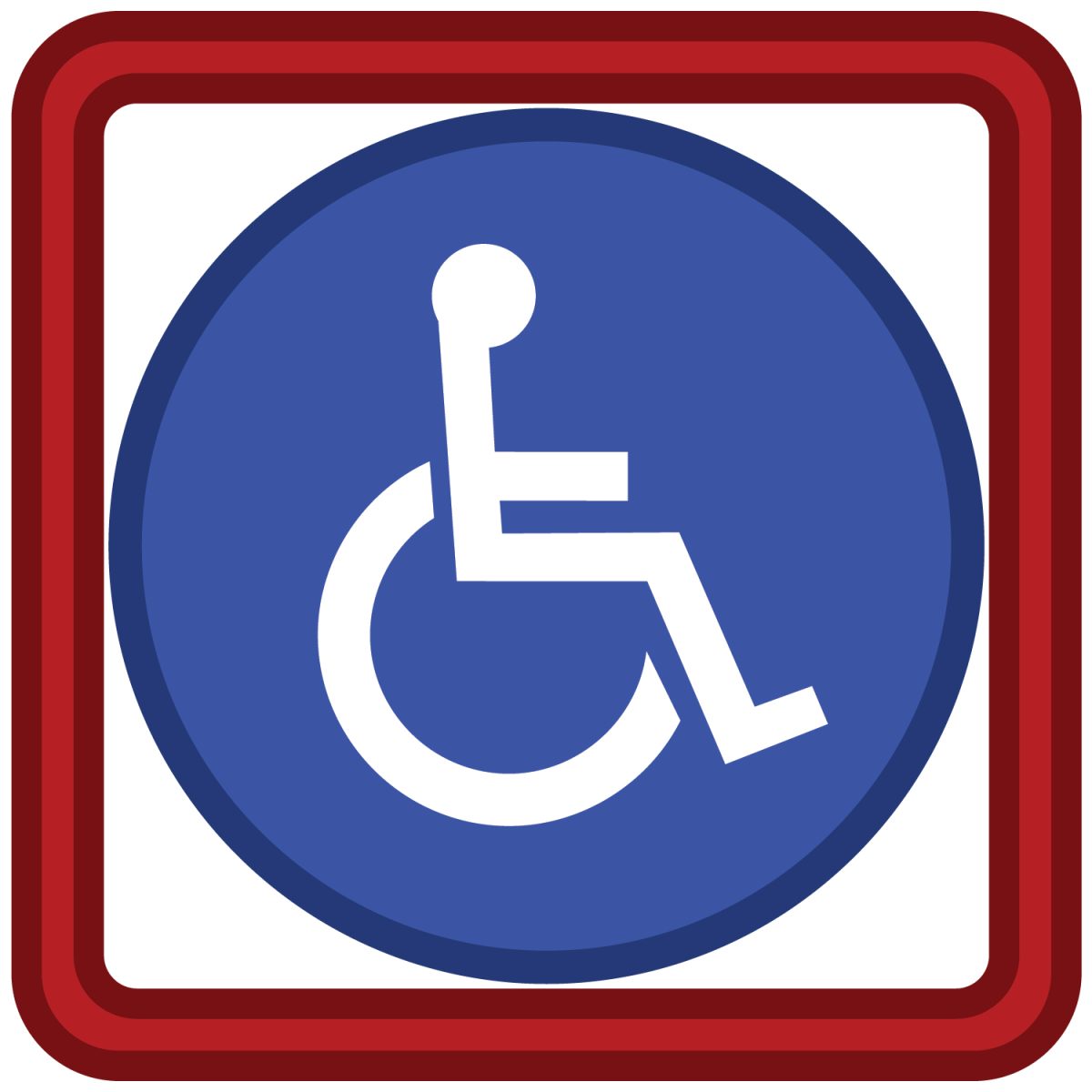A disability is something that can be found in anyone at any time, and it is something that can present itself in a myriad of ways—including both physical and emotionally. Accommodations, for specific disabilities appear in a wide range of ways around the world.
The Americans with Disabilities Act was a law passed to make public spaces and workplaces more accessible for people by providing automatic doors as well as braille or tactile strips. This act also applies to universities, which is why some buildings on the UW-Platteville campus have ramps or elevators, and larger bathroom stalls.
There is a large deficit of necessary accommodations to have a fully inclusive campus. Often, people with disabilities do not attend universities due to the lack of accessibility.
UW-Platteville requires students to live in residence halls for the first two years. The halls all seem to offer varying levels of accessibility, with some having nearly no accommodations for students with physical disabilities.
For example, Morrow Hall features roll-in showers, but no ramps downstairs to do laundry. Certain Hall bathrooms claim wheelchair access, though none of the stalls could realistically fit a wheelchair, and the showers are eight inches above the ground.
Almost all traditional style dorms are inaccessible, apart from Dobson Hall, which features an elevator, wheelchair accessible bathrooms and showers as well as low countertops. However, half of the mail slots are unreachable from a wheelchair.
Typically, dorms do not have air conditioning, which can affect certain health conditions. Only some halls are accessible, and winter can pose an additional threat to students with mobility aids, as snow and ice can make traveling on campus extremely dangerous.
The Platteville shuttle features a wheelchair lift, but only stops at a few places near dorm halls. Accessible residence halls are not a guarantee.
According to the Disability Access Center, “If a student’s top choices for residence halls are already filled or are unable to meet the student’s disability-related needs, the student will be assigned to another residence hall.”
Common requests among people with disabilities regarding living spaces include accessible or private kitchens to accommodate dietary needs, separate sterile bathrooms, single rooms, first floor preference, keyless entry, automatic doors, handles instead of doorknobs, handles or railings near showers, access to reachable mailboxes, control over room temperature and an increase in accessible parking.
Classrooms and other buildings can be equally inaccessible for students with mobility aids. Routes to classrooms are often extremely hilly or steep, which can host a large amount of risk for people with wheels.
Many buildings do not feature lifts or elevators or are only accessible through a singular entrance. A few of the automatic door buttons no longer function and are not regularly assessed.
Gyms and stadiums on campus are also not completely accessible. Pioneer Crossing and Bridgeway Stations both feature high countertops and glass barriers that can make access extremely limited.
Greenwood Avenue Market may seem accessible due to being on a single level, but there is only one accessible door, and the wheelchair accessible bathroom is locked. Accommodations and accessibility don’t always mean automatic doors or larger bathroom stalls. They can also include sensory-friendly locations, low tables or desks, interpreters or braille texts.
Common requests among people with disabilities in classroom settings include priority scheduling, more time to transition between classes, digital versions of textbooks and specialized attendance policies.
There is a Disability Access Center on campus located in Ullsvik Hall. Their goal, as quoted on the website, is to “ … facilitate equal access and full inclusion of disabled individuals through innovative services, programs and partnerships.”
Requesting accommodations, according to the Disability Access Center, includes completing an application online, submitting proof of a current disability, having a personal interview and then finally meeting with a specialist to get individualized accommodations. They request that all paperwork is to be submitted at least eight weeks before the start of the semester.
The paperwork and requests are reviewed by the Residence Life Accommodation Committee, which usually meets once or twice a month, according to the Disability Access Center.
The DAC states that, “a medical condition does not necessarily qualify a student for accommodations or guarantee a specific accommodation … For example, students with ADHD, learning disabilities or psychological disabilities who request a private room to have a quiet study area can have that need met through use of the libraries and other spaces around campus that are suitable for quiet study.”
For every club, meeting or event flyer, there is a line featured in a small font; “To request disability accommodations, contact … ” Accommodations and accessibility must be asked for instead of granted.
A feature on the accessibility website is a “barrier” form, where disabled students are encouraged to report anything hindering their campus experience.
It is not noted when these forms are processed and responded to. This system takes advantage of the lack of accessibility knowledge within the student body as it requires a problem to be identified by students before a change is possible.
Accessibility on this campus is not sufficient for the people who need it. Something important to remember is that things to help people with disabilities will help everyone.
Everyone can benefit from a more expansive bus route, air conditioning and elevators. There are no demographics available for the number of students with a disability on campus, but if accommodations could help even a single student, it’s something that should be supported.
Accessibility is something often taken for granted, or not considered by students. All students deserve to be able to access everything across campus and have the same opportunities as other students when campus can be provide these accommodations.
Equality should not have to be asked for. The last sentence on the page for Residence Life Accommodations reminds us, “remember, all of our halls are great places to live and build community.”
Opinion: Callous Conditions Towards Disabled
0
Tags:




